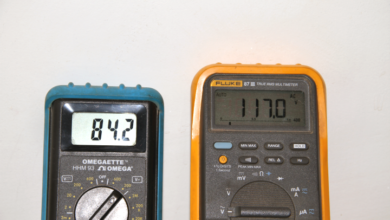Types Of Addiction Treatment Programs: Which One Is Right For You?

The journey to recovery often begins with understanding the different types of addiction treatment Huntington Beach programs available and determining which one is right for you. This article provides an overview of detox, residential, and outpatient programs and offers guidance on choosing the best program for your needs.
Detox Programs: The First Step To Recovery
Detoxification, or detox, is often the first step in the addiction recovery process. Drug detox Huntington Beach involves the removal of harmful substances from the body, allowing individuals to start their recovery journey with a clean slate.
It is particularly crucial for those who are physically dependent on drugs or alcohol, as withdrawal symptoms can be severe and even life-threatening.
- What To Expect In A Detox Program
Detox programs are typically short-term and last a few days to a week. Medications may be prescribed to manage withdrawal symptoms, reduce cravings, and prevent complications. Emotional support is also provided, as detox can be physically and mentally taxing.
- Who Should Consider a Detox Program?
Detox Huntington Beach is essential for individuals who are heavily dependent on substances like alcohol, opioids, or benzodiazepines.
Experience intense cravings and physical withdrawal symptoms or have unsuccessfully tried to quit on your own. A detox program may be necessary before transitioning to other forms of treatment.
Residential Treatment Programs:
Residential treatment programs, or inpatient rehab, provide 24/7 care in a structured, supportive environment.
Patients live at the treatment facility and receive a range of therapeutic services, including individual counseling, group therapy, and holistic treatments such as yoga or meditation.
Residential programs typically last 30 to 90 days, though some may extend longer depending on the individual’s needs.
- What to Expect in a Residential Treatment Program
In a residential treatment program, patients follow a daily schedule that includes therapy sessions, educational workshops, recreational activities, and meals.
The goal is to create a routine that promotes physical, mental, and emotional healing. The residential setting also allows patients to focus entirely on their recovery without the distractions and triggers of everyday life.
- Who Should Consider Residential Treatment?
Residential treatment is ideal for individuals with severe addiction issues or those who have tried outpatient programs without success.
It is also suitable for those who need a safe and structured environment to avoid relapse during the early stages of recovery.
If you have co-occurring mental health disorders, such as depression or anxiety, residential treatment can provide the intensive care needed to address both conditions simultaneously.
Outpatient Treatment Programs: Flexibility And Ongoing Support
Outpatient treatment programs offer a more flexible approach to addiction recovery, allowing patients to receive care while continuing to live at home.
These programs vary in intensity, with some requiring daily attendance and others involving weekly sessions.
Outpatient programs can include individual counseling, group therapy, and educational workshops.
- What to Expect in an Outpatient Treatment Program
In an outpatient program, patients attend scheduled sessions at a treatment center but return home afterward. The level of support and structure depends on the program’s intensity.
Some outpatient programs, such as Intensive Outpatient Programs (IOPs), offer a higher level of care and require more frequent attendance, while others may involve fewer sessions per week.
- Who Should Consider Outpatient Treatment?
Outpatient treatment is ideal for individuals with milder addiction issues or those who have completed a residential program and need continued support.
It is also a good option for those with strong support systems at home, such as family or friends, and those who need to maintain work, school, or other responsibilities while receiving treatment.
Read also: Udyam Registration for Partnerships and LLPs: Empowering Small Businesses in India
How To Choose The Best Program For Your Needs
Choosing the right addiction treatment program is a crucial decision that can significantly impact your recovery journey.
- Severity of Addiction:
The severity of your addiction will play a significant role in determining the appropriate level of care.
- Physical and Mental Health:
If you have co-occurring mental health disorders or physical health issues, you may require a program that offers specialized care, such as a dual-diagnosis treatment center.
Residential programs are often better equipped to address complex health needs.
- Support System:
Consider the strength of your support system when choosing a treatment program. If you have a strong network of family and friends who can support you through recovery, outpatient treatment may be a viable option.
- Commitment Level:
Recovery requires dedication and commitment. Assess your readiness to commit to the demands of the program. Residential treatment requires a significant time commitment, while outpatient programs offer more flexibility. Consider which option aligns best with your lifestyle and responsibilities.
- Cost and Insurance Coverage:
The cost of addiction treatment can vary widely depending on the program type and the stay length.
Many treatment centers offer financial assistance or sliding scale fees based on income.
- Location:
The location of the treatment center can also be a factor in your decision. Some individuals prefer to stay close to home for treatment, while others benefit from traveling to a new environment to break away from triggers and distractions.
- Program Philosophy:
Different treatment centers may have different approaches to recovery, such as a focus on 12-step programs, holistic therapies, or evidence-based practices. Research the treatment center’s philosophy and ensure it aligns with your beliefs and values.
Conclusion
Understanding the different types of addiction treatment programs is the first step toward making an informed decision about your recovery journey.
Whether you choose detox, residential, or outpatient treatment, the most important factor is finding a program that meets your unique needs and provides the support you need to achieve lasting sobriety.
Remember that recovery is a personal journey, and there is no one-size-fits-all solution. You can find the right path to a healthier, happier future by carefully considering your options and seeking professional guidance.
SoCal Beach Recovery is more than just a treatment center; it’s a place where individuals receive the specialized care they need to overcome addiction and start a new chapter in their lives.



